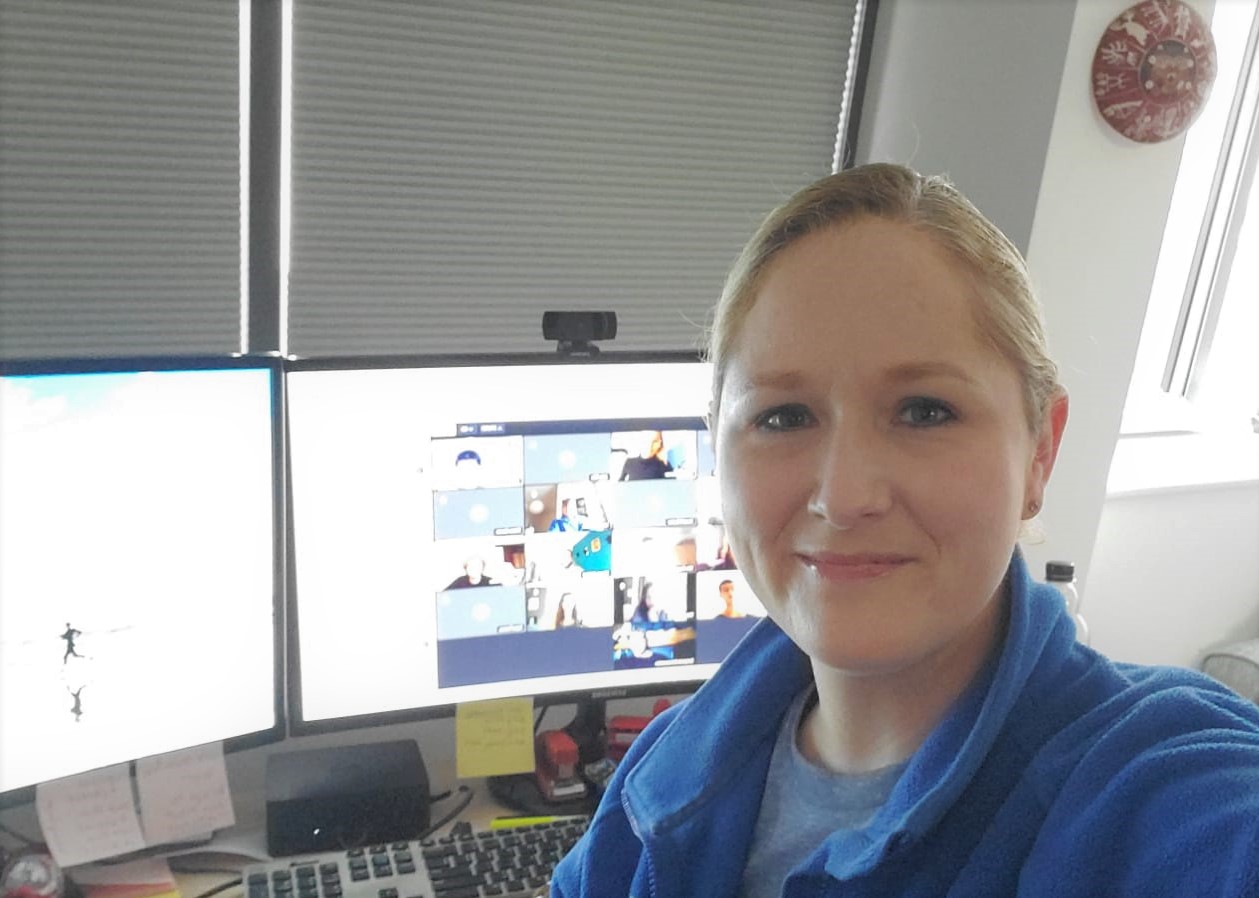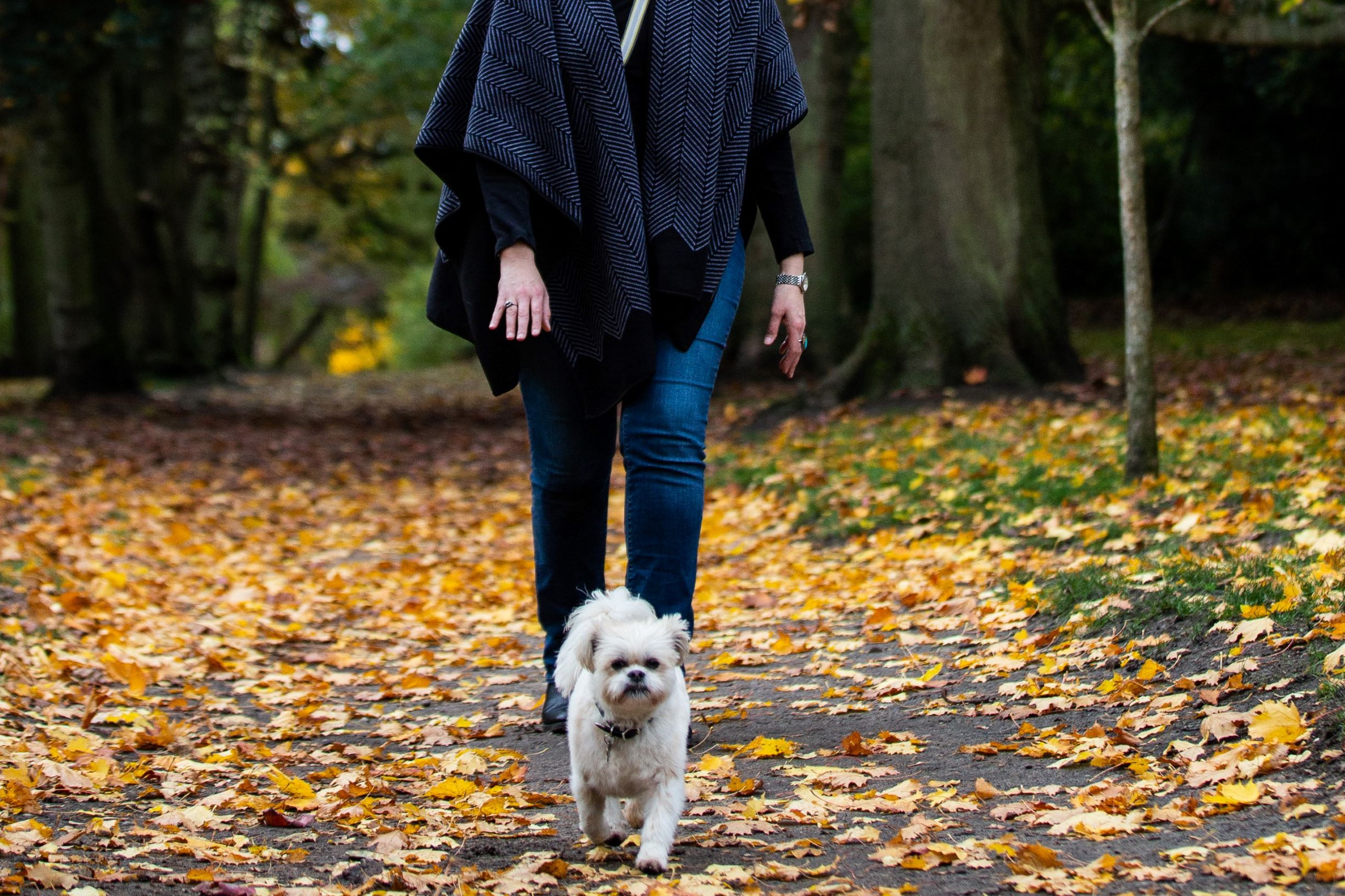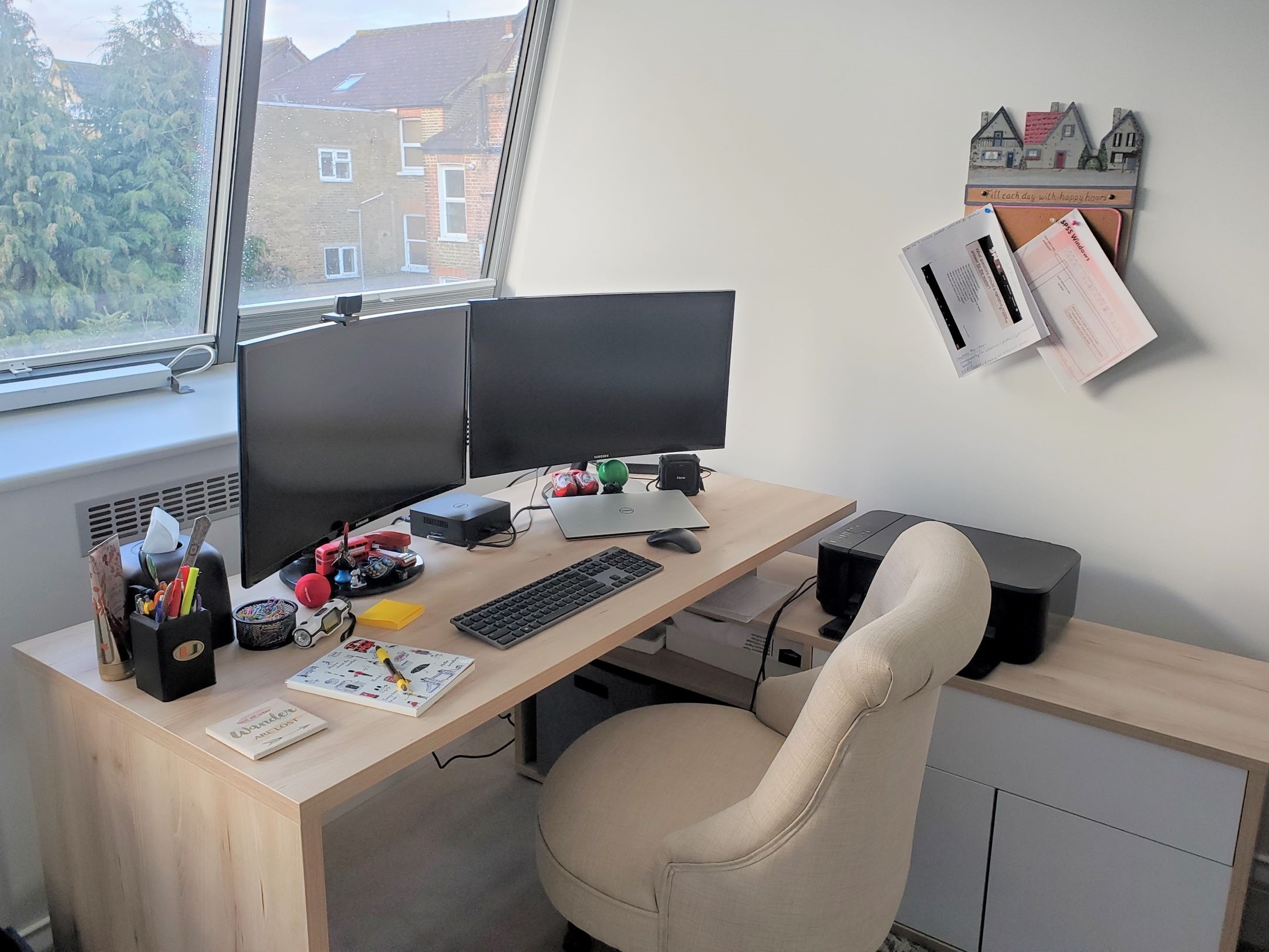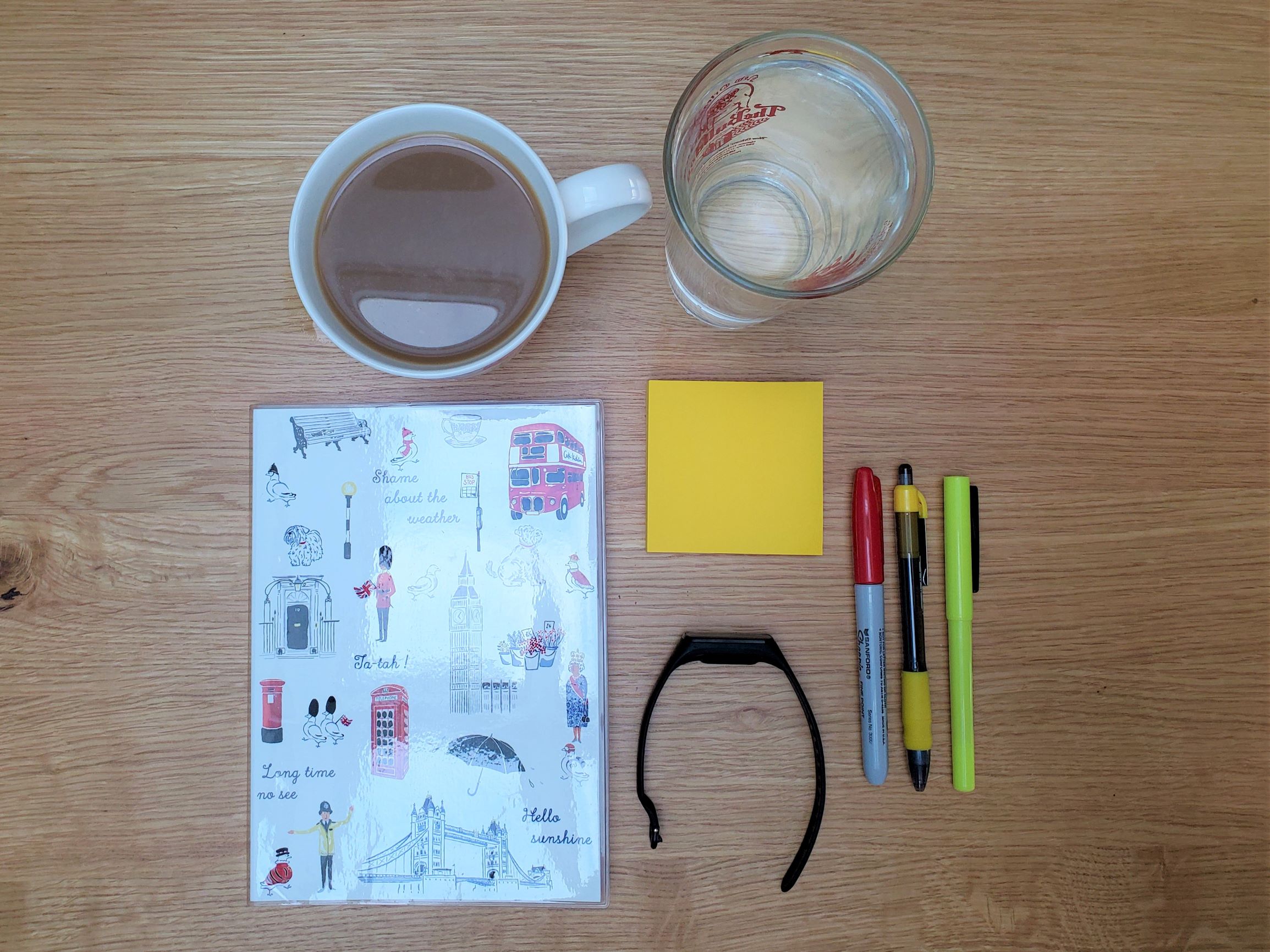Starting in the PhD programme at the University’s School of Hospitality & Tourism Management in April of 2020 has not quite been the experience that I expected. However, I love my chosen thesis topic about how pet ownership affects tourism and leisure and have been enjoying the reading and research around it. Plus, the University, my School, and my supervisors have been amazing in providing support, information, and helping me to make continued progress despite these weird times.
I live in privately rented accommodation with my dog, Princess Buttercup, in southwest London. Although I had no idea a global pandemic was coming, I did know that I would be spending lots of time working on a computer and that I wanted a comfortable and dedicated home workspace to focus on my research. This has turned out to be fantastic for working remotely on my PhD!

As with anything, there are both negatives and positives to working remotely on your PhD. Some of the negatives include limited interaction with other students and faculty, a lot of computer screen time, and an increased sense of isolation. In a way, doing a PhD was always going to be somewhat isolating because you are focusing so in depth on a topic for three years that no one else understands in quite the same way and frankly, they just aren’t as interested. However, various options to socialise have been set up including the Researcher Café, social hours, and catch-up calls within my programme.
In addition, working remotely on my PhD has some amazing benefits including no commuting time, the opportunity to participate in more workshops and seminars (virtually), and more control over the structure of my day. Also, due to the fact that all seminars, workshops, and activities have been moved online, I have been able to participate in tons of them such as PetHack2020, 3 Day Startup, and countless workshops offered by the Doctoral College, the School of Hospitality & Tourism, Surrey’s Student Enterprise, UK Parliament, Elsevier Academy, the South East Network for Social Sciences, and so much more!
It looks like working remotely on my PhD is set to continue well into 2021, so here are my top tips for working remotely on a PhD:

1) Get involved at the University in other ways
Even though we are all working remotely now, there are lots of ways to still be involved with the University. I have really enjoyed participating in events, joining social/catch-up calls, and being involved with Student Enterprise. Everyone is working remotely, and many people would love to connect so just be open and look for opportunities to engage with others at the University.

2) Set a schedule
As tempting as it may be to have a lie-in each morning, it is a great idea to set a schedule for yourself. Working remotely allows lots more flexibility when you don’t have to worry about traffic or catching the train, but I have found it really helpful to set myself a daily time window when I will focus on my PhD (this is now normally Monday-Friday, 9:30-4:00). I also find it really helpful to have to do lists and to create my list for the next day each afternoon before I stop working for the day.

3) Have a workspace that works for you
I knew that I would be spending hours reading and writing while working toward my degree. I tried to keep this fact in mind when I was looking at accommodation and how I was going to set up my workspace at home. It took a while to get all of the pieces for my home workstation set up due to demand at the beginning of the pandemic, but now I love my home office.
Having two large screens has been amazing, especially for notetaking while reading and working with large sets of data. I do try to keep it organised and clean given that I spend hours a day there. That being said, it does occasionally look like a mess of printed off papers and sticky notes!

4) Take breaks and time to yourself
One mistake that I made in the beginning of working on my PhD remotely was not taking breaks and time to myself. At one point I was working seven days a week, sitting for really long stretches of time, and not exercising other than to walk my dog twice a day. After a long and very hot summer working on my research, I realised that something needed to change. I now set aside time daily to workout, do yoga, and have a 10 minute meditation practice on Headspace. Plus, in addition to tracking my steps, my activity tracker now buzzes at me if I have not moved in 50 minutes and reminds me to drink water at least every hour.
I hope that some of these tips help you if you are studying or working remotely. And here is hoping that we can all be on campus studying, working, and researching later in 2021!
